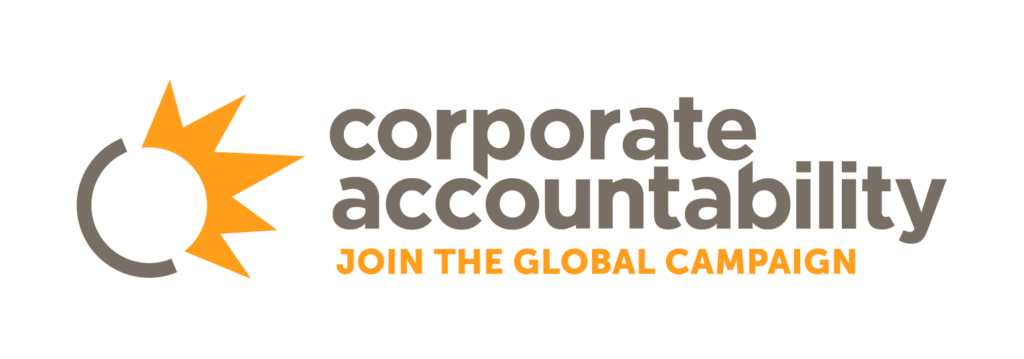
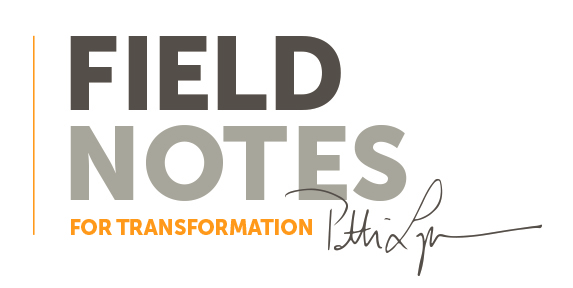
Transforming power from inside out
Dear friend,
I love to talk with members like you about the impact we are having in the world. How our strategic campaigning achieves large and small victories, how we are shifting power and holding corporations accountable. As an organizer at heart and by training, I am always drawn to doing the work of mobilizing people power and advancing our campaigns. And, as the executive director, I also am committed to shaping Corporate Accountability into the most effective organization it can be to achieve our mission.
As I’ve previously noted, as we run hard-hitting campaigns to curb corporate power, we are also doing the work internally to ensure that how we run and organize is in alignment with our vision for the world. And as part of that, I’m using the platform of these letters to you to share the voices and perspectives of others in our community. I’m inspired by how many members like you have told me you’ve enjoyed this series.
So far, you’ve heard from Research Director Ashka Naik and Aderonke (Ronke) Ige, Associate Director of Corporate Accountability and Public Participation Africa (CAPPA). Both play leadership roles in the campaigns to challenge abusive corporations. In this issue, I’m pleased to introduce you to Recruitment Director Carolina Santamaria. Carolina is shifting our recruitment and hiring practices as well as our organizational culture. And in so doing she is helping Corporate Accountability transform into an organization that is even more powerful in our campaigning.
We’ve been lucky to have Carolina on staff for the past six years. She began working with us as an intern, and she’s quickly grown in leadership and in the impact she is having in the organization. As the Recruitment Director, she is helping lead us to be more inclusive and just, so that, in the end, we are better equipped to win our campaigns. I’ve asked her to share her experience at Corporate Accountability and how she sees our work. I think you’ll love getting to know Carolina and what she is making happen.
As always, I welcome your feedback. I love to know what is resonating with you. I’m deeply grateful for your partnership as we learn and grow together into an organization that is transforming in order to transform the world.
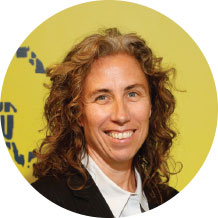
Onward,

Patti Lynn, Executive Director
This movement is for everybody
Carolina Santamaria
A few years ago, the mayor in my hometown of Providence, Rhode Island decided to push forward privatization of our public water system. Some of the world’s largest water privatizers, including Veolia, were vying to reap profits at the expense of my family, friends, and loved ones’ basic need for water. A local coalition of Black, brown, and Indigenous activists and community members came together to lead the resistance to this privatization threat. They invited Corporate Accountability to join the work, and we offered our global perspective, corporate research, and other strategic support. At the time, I was working on the development team at Corporate Accountability, and I very much wanted to get involved in this campaign in Providence and connect my community to this work.
I got the green light to shift some of my responsibilities and spend time organizing with my colleagues and community members. And I’m happy to say we won! The pressure that the coalition built convinced the mayor to end his push to privatize the system. Achieving this victory was amazing. I felt deeply empowered representing Corporate Accountability as a young Latine woman in my own community. And I realized then that I wanted more people like me to feel this thrill and be a part of this work.
Which is how I moved into a role on our recruitment team. It was how I wanted to make deep, long-lasting change: bringing in the perspectives and skills we need to take on corporate power in a truly intersectional and more effective way. Today, as the recruitment director, I am helping to ensure that both the organization and the social justice movements we are part of are well-resourced. We are transforming power from the inside out, and I’m proud to be in a position that is strengthening our work internally and externally.
Changing who gets to be part of this work
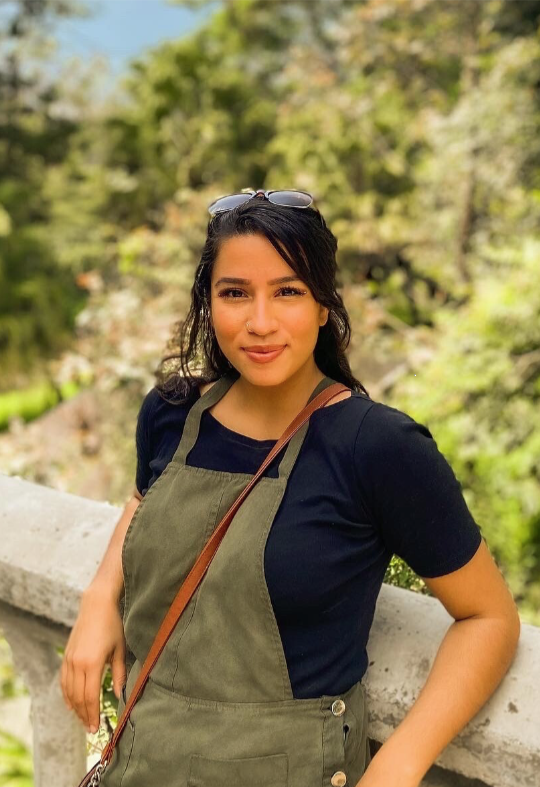
I started my journey at Corporate Accountability as an intern the summer after I graduated college. As a first-generation immigrant from a working class background, I was thrilled to be part of an organization taking on institutional power. I have definitely felt like David in the face of many Goliaths throughout my life, and to get to be part of the team that was taking on the behemoth that is corporate power—it felt both redemptive and like a huge privilege.
I soon came to realize though, that there weren’t many folks like myself on staff, and the learning curve was steep. See, folks from my communities—from immigrant, Black, brown, and Indigenous communities in the U.S.—we often don’t get to lead or sometimes even be a part of this work in the Global North. Wealthier white folks are typically the ones with the resources, access, and privilege to work at nonprofits and NGOs—whether that’s being able to afford lower pay or knowing how to operate within nonprofit culture to rise through the ranks. And so, despite coming from communities that are generally the least affected by systemic injustices, they are the ones who have had the most opportunity to be employed to do social change work.
I wanted to change that. I am changing that. Corporate power does not affect all of us equally, and the communities that experience the most impact, I believe, are truly the voices that need to be at the helm. We are the ones who are experts in the ways the current systems—and corporations—hurt people and the Earth. Our experiences, needs, and visions must be what lead the solutions.
Building impact from the inside out
So my team and I have implemented a variety of changes. We created a paid internship program, which gives access and opportunities to people who don’t have the resources to take unpaid internships. We’ve shifted our recruitment processes so that we are more able to recognize and validate the different ways that experience and qualifications might be represented by people with a variety of backgrounds. We’ve implemented a structured interview process that, as best as possible, minimizes inherent biases we all have living in this society.
All of this is changing who gets to be part of this transformative work, and who gets to see themselves in the work. I will never forget a phone call I had with a former intern who identified as South Asian. She told me that seeing me, a person of color, in a leadership position, taking names and getting things done, really helped her, as a high school student, believe in her capabilities. It changed her perspective on what she was capable of and where she really saw herself. And that is an important reason why I do this, and why it is so important for Black, brown and Indigenous people, queer, non-binary and trans folks, low-income folks, etc. to see themselves in the work.
I also want to emphasize we are able to run more effective and powerful campaigns when our staff have a diversity of perspectives and life experiences. It helps us see the full picture of the powers we are challenging. It brings in creative new ways of thinking about how we campaign, how we engage people in the work, and how we build power.
The thing is, when we—those of us who are too often excluded from this kind of organization and movements—join the work, we often bring our communities with us. That means we are building power for the movement to hold corporate power to account. The more people from different backgrounds that join in on this work, the larger and more resilient the movement will be. More people in more places around the world will know that there is an organization out there taking on the entrenched power of transnational corporations. Our reach—and, in turn, the power of our campaigns—will be immense.
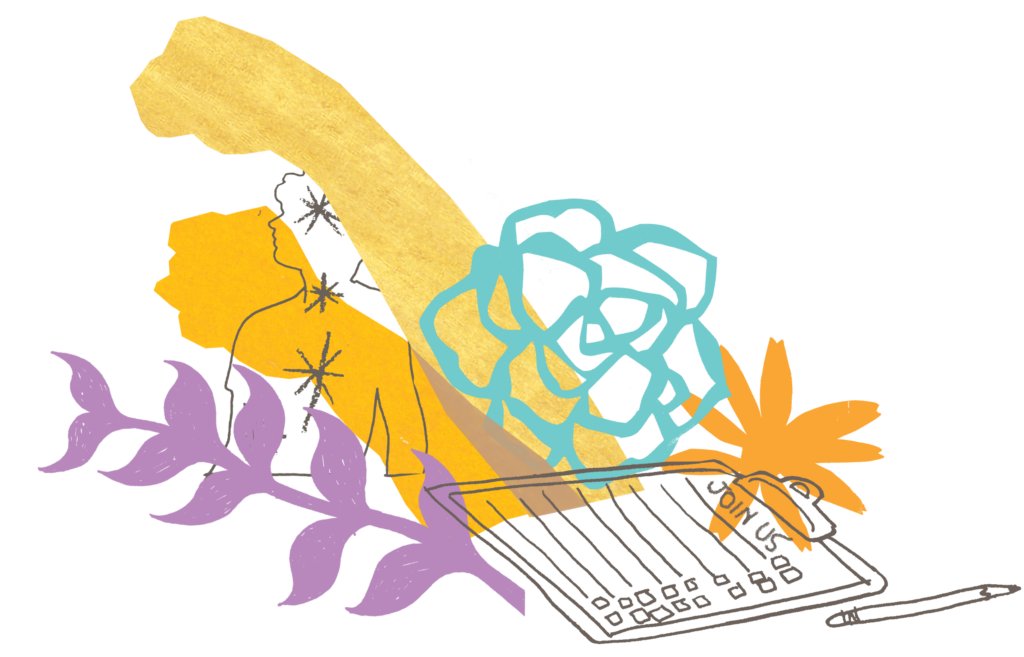
Shifting culture, shifting power
Because I’m helping to bring in different kinds of people to this organization, I believe it’s also my responsibility to help ensure the organization’s culture supports the people we’re hiring. I’m really invested in helping to build an organization that makes space for people of all different identities—folks of different races, class, genders, neurodivergences, and more.
So when I was asked if I wanted to be part of the organization’s primary planning body, I said, “Yes!” I was happy to be part of the group that helps to make important decisions about the direction of the organization. And last year, I formally took on the role of co-facilitator of the planning body. That means I’m playing a primary role in leading the process of developing and finalizing the organizational plans for Corporate Accountability.
I’m also really proud of the proposal that the people of the global majority (the term we use as people of color on staff) put together last year. Corporate Accountability gave us space to take a step back and envision what a workplace might look like that centers those of us who are usually not centered in workplaces. (You know, I say “Corporate Accountability,” but really, it’s all of us. It’s very easy to forget that we humans make up an organization. It’s not like an entity floating outside of us. We did it; we made these changes possible.) Anyway, we gave ourselves and each other the space to name what we need and how it might be possible to meet those needs.
There’s this outdated idea that you have to suffer to be an activist and in the movement. But if I’m showing up burnt out, exhausted, and making other people unhappy, I’m not really contributing to the movement. So we asked ourselves, what do we need to fill our own cups so we can show up to this job and fill all of the cups that are our responsibility to fill in this moment? And how do we have policies that ensure that others from our communities are also able to do this work?
Based on this proposal, the organization—we—implemented a whole range of changes to our policies and practices—from de-centering holidays of only one religion above others, to flexibility around remote work, to equitable vacation policies, and more.
Resourcing the movement to win
In the end, I’m committed to helping to resource this movement as a whole. I pay a lot of attention to building new relationships and maintaining them—both with individuals and organizations. We’re all part of a larger ecosystem of change, and I think it’s important that we are connecting and building trust with each other as we go.
People have so much to offer to this movement—beyond just filling a staff position. Until we create, together, an economic system that prioritizes care over profit and productivity, most of us have to work. And, when it comes to hiring under capitalism, we can’t give a job to everyone who needs and wants one. But the way I see it, everybody has a place in this movement. There are so many ways people can be involved. So I love to involve former candidates in taking action with us.
I see recruitment as an education tool, as a way to plant a bunch of seeds that can make our movement so much more powerful. The more people know about this work, the more word is going to spread. And the more pressure we can apply to abusive corporations. This inherently is about disrupting the powers that be, and we need everybody. This movement for transformational change belongs to everybody.
Other issues of the Field Notes conversations series features Ashka Naik, research director, on leadership and corporate campaigning; and Aderonke Ige, associate director of Corporate Accountability and Public Participation Africa, on democracy and people power.


